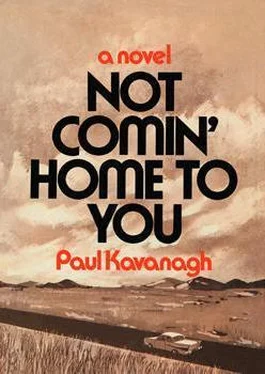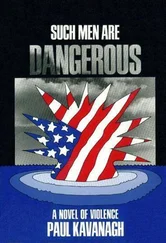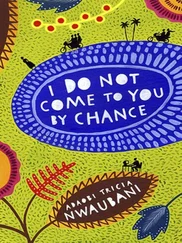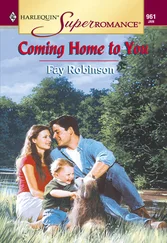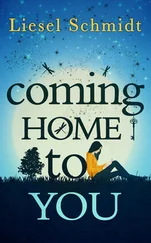Paul Kavanagh - Not Comin' Home to You
Здесь есть возможность читать онлайн «Paul Kavanagh - Not Comin' Home to You» весь текст электронной книги совершенно бесплатно (целиком полную версию без сокращений). В некоторых случаях можно слушать аудио, скачать через торрент в формате fb2 и присутствует краткое содержание. Город: New York, Год выпуска: 1974, ISBN: 1974, Издательство: G.P. Putnam's Sons, Жанр: Криминальный детектив, на английском языке. Описание произведения, (предисловие) а так же отзывы посетителей доступны на портале библиотеки ЛибКат.
- Название:Not Comin' Home to You
- Автор:
- Издательство:G.P. Putnam's Sons
- Жанр:
- Год:1974
- Город:New York
- ISBN:978-0-399-11357-4
- Рейтинг книги:3 / 5. Голосов: 1
-
Избранное:Добавить в избранное
- Отзывы:
-
Ваша оценка:
- 60
- 1
- 2
- 3
- 4
- 5
Not Comin' Home to You: краткое содержание, описание и аннотация
Предлагаем к чтению аннотацию, описание, краткое содержание или предисловие (зависит от того, что написал сам автор книги «Not Comin' Home to You»). Если вы не нашли необходимую информацию о книге — напишите в комментариях, мы постараемся отыскать её.
Not Comin' Home to You — читать онлайн бесплатно полную книгу (весь текст) целиком
Ниже представлен текст книги, разбитый по страницам. Система сохранения места последней прочитанной страницы, позволяет с удобством читать онлайн бесплатно книгу «Not Comin' Home to You», без необходимости каждый раз заново искать на чём Вы остановились. Поставьте закладку, и сможете в любой момент перейти на страницу, на которой закончили чтение.
Интервал:
Закладка:
And then he had moved the station wagon forward, parking it over the corpse. He explained it all to her. A body at the roadside would draw immediate attention, and the wagon had no trunk in which to hide the body. But the wagon itself would do a good job of hiding the body until someone took a close look at it, and a car with its hood up did not invite a close look; the average person would simply assume the car had had mechanical difficulties and the driver had gone off for assistance. Of course sooner or later some eager cop would recognize the license plate, but in the meantime they would have bought an extra couple of hours.
Something got to her, though, when the car moved forward over the dead man. She kept waiting for the wheels to pass over the corpse. She knew that he had positioned the body so that the wheels would clear it on either side, but still she braced herself for the impact that did not come. And then he loaded the gun again, very deliberately, and took the box of shells along as they got into the Coronet and turned it around and drove away.
She had a headache now, a dull throbbing ache in back of her eyes. She rubbed her forehead but the pain wouldn’t quit. Her stomach rumbled and she wondered if she ought to eat something. There was a cheese sandwich left but nothing to drink, an her mouth was dry already, so that the thought of a cheese sandwich with nothing to wash it down was unappealing.
A record ended and she waited for the news. The announcer did the lead-in for a fifteen-minute summary of farm prices. She hunted for another station, then gave up and snapped the radio off and sat back.
She said, “He wanted to help us.”
“Huh?”
“The man you killed. The others drove right on by, but he stopped his car because he wanted to help us, and now he’s dead.”
He thought it over. “It makes you wonder,” he said.
“Makes you wonder ?”
“Wasn’t that what you were driving at? The bastards who go on driving, they’re out of it without knowing what they missed. And this here guy who’s just trying to be nice, he’s parked out there with a car parked over him.”
A chill went through her. She crossed her arms over her chest and hugged herself. She decided not to say anything. But she had to say something.
“Why did you have to kill him?”
“You know the answer.”
“To buy time.”
“That’s right.”
“So they’ll find him and this car will be bad the same as the last one.”
“They’ll be awhile doing it,” he said. His tone was very matter-of-fact. “I took his wallet, so they’ll be awhile finding out who he is and another while finding out what kind of car he was driving. Whereas if I just left him with a handshake he’d be on the phone by now. Not to mention that he was a witness.”
“So am I.”
“How’s that?”
“I’m a witness, too, Jimmie John.” Her voice was rising, but she couldn’t help it. “I’m a witness, just look what a damn fine witness I am, so when are you gonna shoot me? When are you gonna—”
He hit her without even looking at her, swung a sharp backhand that caught her across the cheek. Her head slapped back against the headrest. She put her hand to her face.
For another mile or so neither of them spoke a word. Then he said, “Betty, I am sorry. I never meant to do that.”
“It’s all right.”
“Ain’t all right. I never should of hit you. It’s driving so much that’s getting to me.”
“I had no right to say what I said.”
“Well, there’s questions you can’t ask anymore, baby. You have to know that.”
“I know.”
Jimmie John turned off the highway suddenly without comment, and it was almost a full minute before she realized they were on one narrow lane of dirt and gravel.
“I don’t think this is a road.”
He told her it was a farm road. “Farm road most often leads to a farmhouse,” he said. “It’s in the natural way of things.”
“A farmhouse?”
“I can’t drive any more. I have to crash before I run us into a tree. I’m starting to see things in front of me on the road. Cars coming at us when there aren’t any cars coming at us. And we both need to wash up and eat some real food. I feel like my skin’s about to crawl. There it is, big white house and a big old barn. Off on a private road like this there won’t be anybody seeing the car.”
He cut the engine. She looked at the house. It was a large frame structure, a sprawling house that had evidently been frequently enlarged over the years. The house was in good repair, the clapboards freshly painted, the front yard tidy, the house and walks lined with beds of daffodils just coming into bloom. There was a cow in the barnyard, and some hens. Propped against a weathered rail fence was a racing bike, and near it a child’s tricycle.
Children.
“Now you wait here,” he said. And she tried not to notice that he was taking the gun with him.
He got out of the car. A large yellow dog of no particular breed came trotting out from behind the house. Jimmie John slapped his thigh and the dog hurried over and let itself be scratched behind the ears. It didn’t bark at all and stayed at Jimmie John’s side as he walked to the side door.
She made herself think about Mexico. They would be safe in Mexico, she decided. Once they were across the border they would be all right. They wouldn’t need the gun in Mexico. They could throw it away before they crossed the border, and they would never have to hurt anyone again.
Oh, God, a tricycle.
They could be very happy in Mexico. Spanish had always come easy to her, the one subject she never had any difficulty with, the one subject she actually enjoyed. And it was much much easier to learn a language, any language, when you were actually living in the country where it was spoken. You used it every day and it became second nature to you; you even thought in that language as often as you thought in English. Jimmie John didn’t speak Spanish but she had enough of the language to get along for a while, and he would learn, she would help him with it, and it wouldn’t be long before he spoke it as well as she did. Maybe they would speak Spanish among themselves, maybe they would actually turn into Mexicans, living in a homey little hut somewhere, raising children and—
Don’t think about children.
If she were in Grand Island, it would be almost time to get up for school now. Was it a school day? Yes, it was Friday. It had been a Wednesday afternoon when they met. And now it was only Friday. It seemed impossible. Less than two days, and now four people in Grand Island were dead, and two people in the motel, and a man under the station wagon, and, and—
How many?
It would be very nice in Mexico. Maybe they would live out in the country, away from crowds and noise. Maybe they would have chickens and a cow and maybe she could learn to ride horseback, and the kids would have a burro, and—
Or the kids would have a tricycle. Maybe they should just take this tricycle for the kids, load it into the car and switch it to another car later on and, oh, God, what was happening to her?
Mexico. Think about Mexico.
“Hey!”
She opened her eyes. He was leaning against the door on her side of the car, his eyes bright.
“Never saw you like that before,” he said. “Hands all knotted up and eyes squeezed tight like that. You all right?”
She nodded. She opened her hands and looked at the palms, There were semicircular indentations from her fingernails. She hadn’t even known she was doing it.
“Come on in,” he said. “It’s a great house.”
“How many?”
“How many what?”
She closed her eyes. “People.”
He said, “Oh.” Then he said, “Well, we got lucky for a change. Ain’t nobody home. Kind of expected that, seeing as there’s no car around, so I knocked some and let myself in and took the unguided tour of the place. Nobody home.” His eyes narrowed, “Though by the time this gets on the damn radio, I guess they’ll be three dead bodies in every damn room. Be a whole damn bloodbath the time they get through with it.” He set his head back suddenly and laughed. “Oh, the hell,” he said. “Now will you kindly come out of that car and have a look at this house I went and found for you?”
Читать дальшеИнтервал:
Закладка:
Похожие книги на «Not Comin' Home to You»
Представляем Вашему вниманию похожие книги на «Not Comin' Home to You» списком для выбора. Мы отобрали схожую по названию и смыслу литературу в надежде предоставить читателям больше вариантов отыскать новые, интересные, ещё непрочитанные произведения.
Обсуждение, отзывы о книге «Not Comin' Home to You» и просто собственные мнения читателей. Оставьте ваши комментарии, напишите, что Вы думаете о произведении, его смысле или главных героях. Укажите что конкретно понравилось, а что нет, и почему Вы так считаете.
